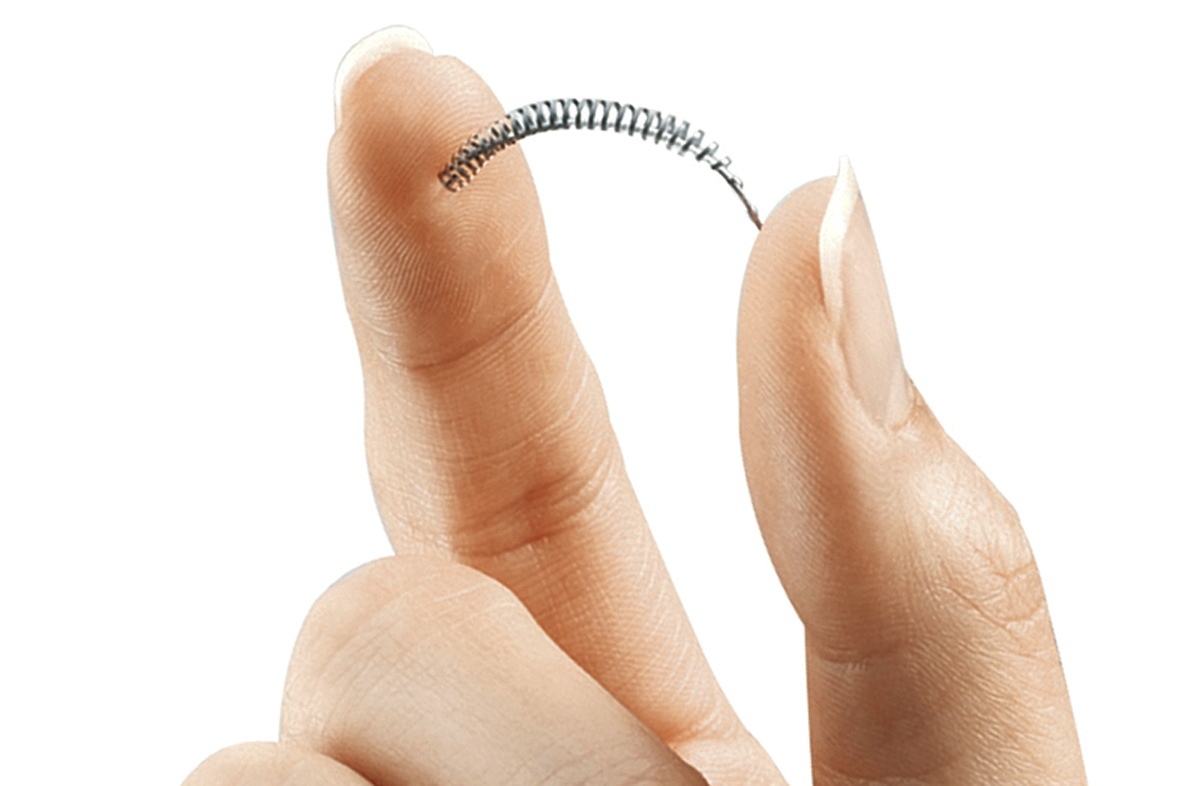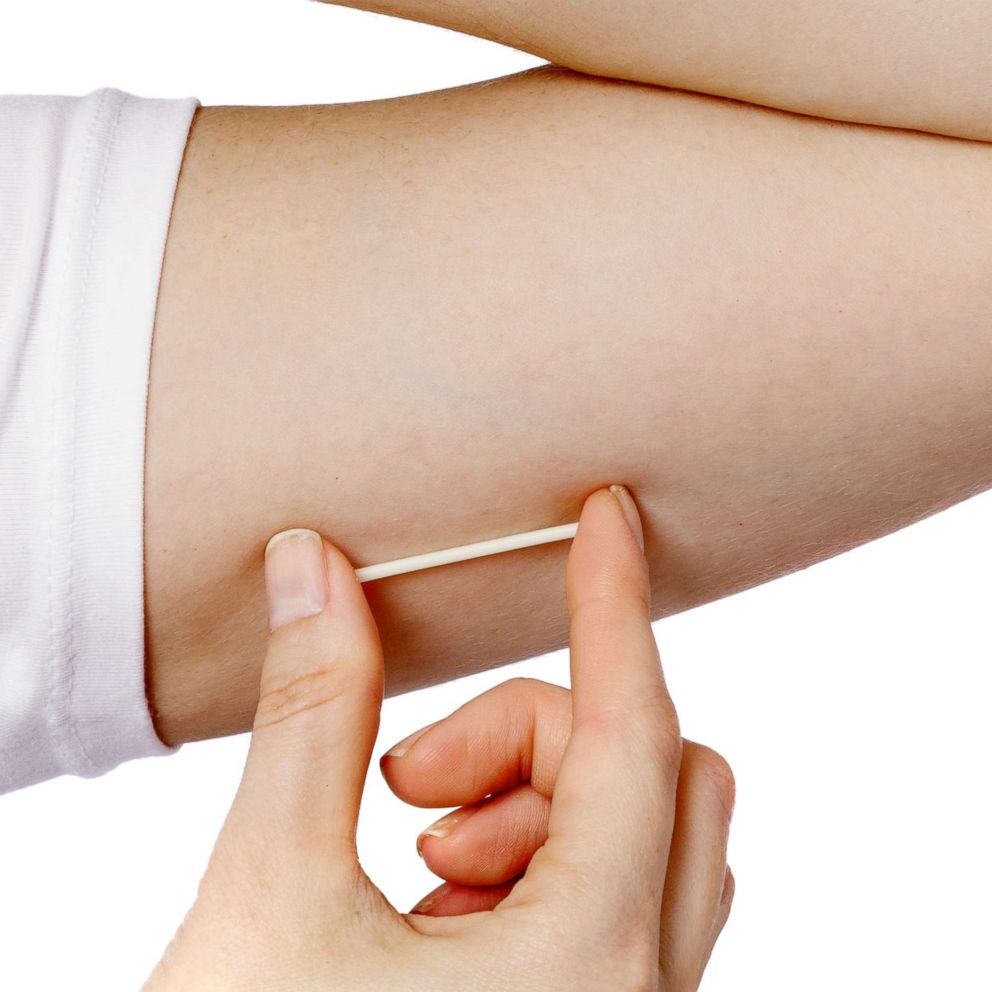Bayer to no longer sell permanent birth control implant Essure
The pharma company said the decision was based on poor sales, not health risks.
Editor's Note: After the July 26, 2018 "Good Morning America" broadcast report, Bayer provided us with a statement which stated in part: "Women with Essure and their healthcare providers should know that concerns raised in recent years regarding the Essure device have been based on anecdotal reports, rather than science. While Bayer takes any adverse event report seriously, the FDA has repeatedly cautioned that adverse event reports can be 'incomplete, inaccurate, untimely, unverified or biased' and duplicative, and that adverse event reports alone cannot be used to determine rates of events or causation." Bayer’s complete statement may be found here.
Bayer Pharmaceuticals announced that it will no longer sell the permanent birth control implant Essure starting at the end of this year.
Essure has courted controversy since it hit the market in 2002. It was initially marketed as the only permanent birth control method that did not require a surgical incision.
Earlier this year, the U.S. Food and Drug Administration (FDA) announced that patients must be given an in-depth checklist prior to receiving the implant.
“We’ve been closely evaluating new information on the use of Essure, and based on our review of a growing body of evidence, we believe this product requires additional, meaningful safeguards to ensure women are able to make informed decisions about risk when considering this option,” FDA Commissioner Scott Gottlieb, M.D., said in a statement this April.
Women who say they have experienced adverse side effects from the contraceptive have also convened in a series of Facebook groups, some of which have exploded in popularity, where they share their experience and warn other women considering the procedure. Some have garnered tens of thousands of members.

On the Facebook pages, many women advocate against its use, citing pain and bleeding, and in some cases even perforation of the uterus or tubes after insertion.
Bayer maintains that its decision to pull the product -- effective Dec. 31, 2018 -- was solely based on business reasons, citing declining sales in recent years.
In a statement to ABC News, Bayer said that "the positive benefit-risk profile of Essure has not changed and has been demonstrated in extensive clinical trials, post-approval studies, and analyses of real-world evidence over the past 20 years."
The statement added that the "FDA continues to believe that Essure’s benefit-risk profile remains positive and unchanged."
To receive the implant, a health care provider inserts a small implant made of flexible coils via a video-assisted device through the vagina into the fallopian tubes, the tubes that carry eggs to the uterus, or womb.
After a few months, scar tissue develops as a barrier to prevent the eggs from ever meeting sperm and the woman from becoming pregnant.
Dr. Ronald Johnson, an assistant professor at Loma Linda University School of Medicine in obstetrics and gynecology (Ob/Gyn), told ABC News that he has used it often in practice, but not recently.
“I used it a significant amount and it was a device that was well-thought out, the idea was quite sound, it had great efficacy,” he told ABC News, saying that all other options for permanent contraception are done by laparoscopic surgeries.
Laparoscopic surgery is a minimally invasive technique where small surgical incisions are made on the skin so that surgical tools with cameras can be inserted to navigate inside the abdomen.
Patients who benefited from Essure were usually those who couldn’t have abdominal surgeries, such as people with morbid obesity, multiple prior surgeries, or other internal abdominal issues.
“It was a very clever tool to have in our quiver,” Johnson added. “If the protocols were followed properly, it had a group of patients it was uniquely advantageous to.”
However, Johnson said that he believes complications were more often from improper practitioner use rather than the Essure device itself, because of procedure complexity.
“You had to be an experienced hysteroscopist [Ob/Gyn who uses surgical cameras] to appropriately identify the [fallopian] tube and have appropriate insertion technique," Johnson said. "Not forcing it into the tube and placing it where you could see the coils and where they were inserted.”
In fact, he described one woman where an unknown provider had inserted multiple devices in both tubes, because, presumably, the provider had been unable to see the originals and thought the woman needed more. Unfortunately, the device had actually gone through the walls of her uterus and tubes.
“From about 2002 to 2016, I never had a single person come back complaining of pain or requesting removal," Johnson said. "But in the last year and a half, I’ve removed five or six."
Johnson said he's unsure if it's internet awareness or an actual association of the device with problems, but from his experience, “the vast majority work without a complication,” which is consistent with patient satisfaction ratings from FDA clinical trial participants after five years, according to the statement from Bayer.
For those who do end up having complications, removal may be the answer.
However, people should speak with their physicians about it, since it does not always require a total removal of the uterus and tubes.
Dr. Stephanie Sophie Lee is a pediatrician and preventive medicine resident in South Carolina and a resident in the ABC News Medical Unit.
Editor's Note: After the July 26, 2018 "Good Morning America" broadcast report, Bayer provided us with a statement which stated in part: "Women with Essure and their healthcare providers should know that concerns raised in recent years regarding the Essure device have been based on anecdotal reports, rather than science. While Bayer takes any adverse event report seriously, the FDA has repeatedly cautioned that adverse event reports can be 'incomplete, inaccurate, untimely, unverified or biased' and duplicative, and that adverse event reports alone cannot be used to determine rates of events or causation." Bayer’s complete statement may be found here.





